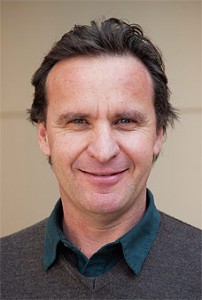 Pure Hawke’s Bay represents Hawke’s Bay growers and producers who believe that branding the region as a world-renowned producer of premium food that is not genetically modified (GM) should be a central plank in our region’s economic development strategy.
Pure Hawke’s Bay represents Hawke’s Bay growers and producers who believe that branding the region as a world-renowned producer of premium food that is not genetically modified (GM) should be a central plank in our region’s economic development strategy.
Our proposal is simple – declare Hawke’s Bay a ‘GM free’ food producing area. In practice this simply means endorsing the status quo. We are not talking about GM in the lab or medicines, but the release of genetically modified organisms (GMOs) in the outdoors; something the Hawke’s Bay environment is currently free from. As food producers, we are firmly pro-science and look to new technologies, systems and approaches that can help us make production more sustainable and valued in the market place. For the time being GMOs do not fit into that picture.

I grow, pack and export large volumes of produce all around the world. I can tell you, consumers are increasingly concerned about food safety and will pay a premium for GM free food. I currently sell waxy maize to Korea which is sold for human consumption as GM free corn. It fetches a premium of US$100/Metric Tonne above corn that cannot claim that status. Mrs Watanabe, the classic Japanese housewife living in Tokyo, typically pays double the price to purchase domestic Japanese produce because she has a sense of safety. Home grown is perceived to be safer than dreaded foreign food. There is a huge market to win if we can sell our current products branded as GM free at the same price as domestic Japanese production.
The truth is that we in Hawke’s Bay are not large volume producers and therefore have no real scale and very high costs. We are struggling to be competitive in the world. Regardless of what the technology may offer, the consumer signals remain clear and strong. In this environment, introducing GMOs in Hawke’s Bay would have devastating consequences for the region’s premium food exporters. Damaging the Bay’s brand in international markets would compromise the economic returns and sustainability objectives of our growers.
Being a GM free food production region is an excellent marketing opportunity for Hawke’s Bay. Moreover, if field use of GMOs resulted in contamination of other crops (which we believe would be inevitable), the economic damage would be irreversible. That means that for the foreseeable future, outdoor GM food production should not be an individual choice – it would affect all food producers and processors in the region. We are all in this together. Hawke’s Bay needs to lift its economic performance as a region in New Zealand and we need to do something now. Our local councils have a significant role to play in this matter. Their initiative would cost very little and have a huge impact. In fact, protecting our GM free status has to be the lowest cost, least risk and best opportunity to have been presented in years.
“The truth is that we in Hawke’s Bay are not large volume producers and therefore have no real scale and very high costs. We are struggling to be competitive in the world.”
pure hawke’s bay spokesman
john bostock
Acceptance of this proposal that Hawke’s Bay food production remain GM free has advanced a great deal and now our region is ready for it. Pure Hawke’s Bay is working with both large and small food producers who support and see the economic opportunities. We expect that over the next few years the risks of GMO use will become even more clearly understood, the lack of benefits established, and public consumer resistance – most especially in our overseas food markets – will intensify. New Zealand, with Hawke’s Bay in the vanguard, must differentiate itself by preserving its status as a GM free food producer. GM free food producing status represents an economic opportunity for all producers (conventional and organic), for processors and marketers and people with a passion for the Bay. So what can our councils do?
They can write ‘GM free food producer’ status into our local, district and long term plans (LTPs), as well as our Regional Policy Statement. And we are asking them to take precisely that precautionary approach as these plans are revised over the coming months. Pure Hawke’s Bay has made its submissions in the annual plan process and presented to the Rural Community Board, the Hastings District Council and the Hawke’s Bay Regional Council.
The Ministry for the Environment (MfE) recognises that local bodies have the power under the Resource Management Act to prevent the release of GMOs in their respective regions. MfE and Environment Minister Nick Smith have communicated this advice to other local bodies in New Zealand who are contemplating similar local protective action.
This is not just an issue of whether decisions by the national regulator will meet the needs of our region. It is an opportunity for Hawke’s Bay to decide and pursue its own economic advantage. Hawke’s Bay has a great chance to position itself as the premium GM free food and wine producing region in New Zealand. Hawke’s Bay is currently GM free. So why don’t we just take advantage of our current status and benefit from the economic advantage this gives us?

It's great to see someone with the stature of John Bostock rasing this issue. What a great way for the economy to grow in the HB without any great capital or enviromental investement.
Why aren't other agricultural leaders piciking up on this discssion?